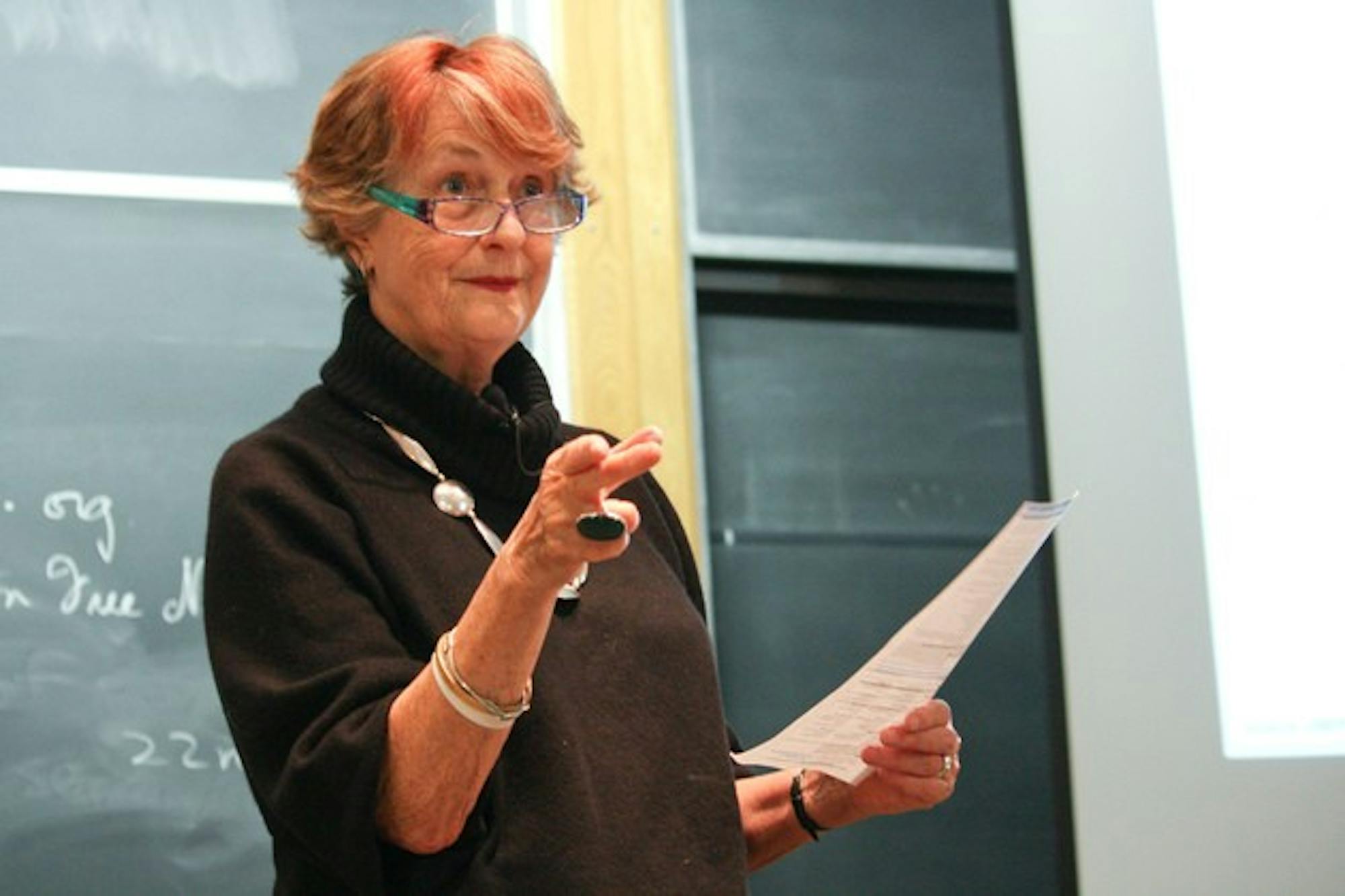Making frequent use of the blackboard to illustrate her points, Caldicott described the ways in which each stage of the production of nuclear power, from the mining of uranium to the storing of nuclear waste, can release dangerous, cancer-causing chemicals into the environment.
Radiation exposure can lead to uncontrollable cancerous cell growth, Caldicott said.
The radioactive isotope tritium, for example, is released into rivers and groundwater after it is used in nuclear reactors. Tritium can cause congenital abnormalities and cancers in the brain and other regions if absorbed through the lungs or skin during a fog, or if it is ingested through chemical accumulation in food, according to Caldicott.
"You can't operate a reactor without tritium escaping continuously," Caldicott said.
Nuclear power also carries potentially catastrophic risks associated with a nuclear meltdown, either by accident or through a terrorist attack, Caldicott said. Had the terrorists in the attacks of Sept. 11, 2001 targeted nuclear power plants instead of other buildings, they could have caused a meltdown that would have killed up to 100,000 people, according to Caldicott.
"If they really wanted to destroy the financial capital of the world, they should have attacked a nuclear reactor. It's not that hard," Caldicott said.
Some parts of the nuclear power process also contribute to global warming, Caldicott said. The uranium industry in Caldicott's native Australia, where 40 percent of the world's uranium is mined, uses large amounts of electricity produced in coal-fired power-plants, according to Caldicott. She also said that chlorofluorocarbons, a potent greenhouse gas responsible for the deterioration of the ozone layer, are used in the enrichment process.
Caldicott gave several ways for individuals to minimize exposure to radiation. She warned against eating Hershey chocolate, for example, because of potential irradiation of its milk supply due to the proximity of Hershey, Penn., to the Three Mile Island power plant. Medically unnecessary radiological scans are also potentially dangerous sources of exposure to radiation, according to Caldicott.
Caldicott said that she would not live in Hanover due to its proximity to the Vermont Yankee reactor. She also called on the citizens of Vermont to work to immediately shut down the Vermont Yankee nuclear reactor in Vernon, Vt.
"You can't say you're green and that's your brand until you shut this reactor down," she said.
The Vermont Yankee reactor has been the focus of controversy following the discovery of tritium leaks from the plant into groundwater. The Vermont state Senate voted in February to prevent the renewal of the reactor's contract in 2012, The Boston Globe reported.
Citing the acute effects of radiation on the rapidly dividing cells in children, Caldicott said the students of Vernon Elementary School, located adjacent to the plant, are in danger of exposure to radiation.
"That school must be closed as a medical emergency," she said.
Caldicott also said the leaks from the plant could contaminate the food produced in local farms.
"That food should not be sold on the market," she said.
Caldicott ended the lecture with a call for collective political action to end nuclear power and stop environmental damage.
"We can stop global warming, but the politicians have to be taken out of the pockets of companies that burn coal, oil and uranium," Caldicott said. "The politicians are not your leaders, they are your representatives and you are their leaders."
Caldicott co-founded Physicians for Social Responsibility, an organization of 23,000 doctors that aims to educate the public about the dangers of nuclear power and nuclear weapons. The group is affiliated with International Physicians for Social Responsibility, which was awarded the Nobel Peace Prize in 1985. Caldicott also founded Women's Action for Nuclear Disarmament and is the author of several books about nuclear power and weapons.




